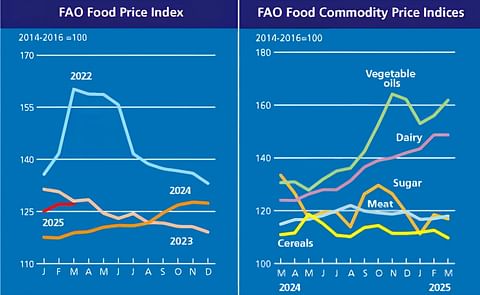Resistant starch may help control diabetes, aid in weight management and reduce colon cancer risk, according to new studies presented at the Institute of Food Technologists (IFT) 2009 Annual Meeting and Food Expo®.
Suzanne Hendrich, Ph.D., professor of food science and human nutrition at Iowa State University, discussed the four types of resistant starches: physically inaccessible (course-ground wheat), high-amylose (high amylose corn starch), retrograded amylose (cooked and cooled potato starch), and chemically modified starches (modified maltodextrins). Digestion-resistant starches resist digestion and absorption in the small intestine but completely or partially ferment in the large intestine.
“When studied as a substitute for non-resistant starches, digestive-resistant starches increased satiety, decreased the caloric content of meal and helped lower blood sugar response,” said Dr. Hendrich.
In one study, consumption of high-amylose starch muffins increased satiety in 20 subjects, showing potential for a role of resistant starch in weight management. The same results were seen whether the resistant starch was consumed for breakfast or with an evening meal. Rodent studies also indicate that substituting resistant starches for digestive starches reduces body fat.
Resistant starches also decreased blood glucose response. While studies have not yet been done with diabetics, early research indicates this may decrease adverse effects of hyperglycemia and diabetic complications, Hendrich said.
Concern over the adverse effects of large amounts of undigested resistant starches raises issues. However, studies showed no significant negative results, such as abdominal discomfort, for up to 33 grams of resistant starch although this varies according to the individual, said Jens Walter, Ph.D., food science researcher with the University of Nebraska.
The typical modern diet is low in resistant starches, which could be detrimental to a healthy digestive tract. “We have several hundred bacterial species in our gut,” said Walter. “These bacteria have an influence on disease and vary according to lifestyle and environmental factors. Resistant starches lead to a modulation of gastrointestinal gut microbiota. It showed a remarkable prebiotic effect.” Prebiotic activity promotes the growth of healthy bacteria in the bowel and discourages the growth of potentially harmful bacteria. On average, resistant starch increased bifodobacteria by more than 300 percent, according to Walter.
Fermentation of resistant starch in the colon also produces short-chain fatty acids (SCFA), including butyrate and propionate, which show promise as anti-cancer, anti-inflammatory products.
Suzanne Hendrich, Ph.D., professor of food science and human nutrition at Iowa State University, discussed the four types of resistant starches: physically inaccessible (course-ground wheat), high-amylose (high amylose corn starch), retrograded amylose (cooked and cooled potato starch), and chemically modified starches (modified maltodextrins). Digestion-resistant starches resist digestion and absorption in the small intestine but completely or partially ferment in the large intestine.
“When studied as a substitute for non-resistant starches, digestive-resistant starches increased satiety, decreased the caloric content of meal and helped lower blood sugar response,” said Dr. Hendrich.
In one study, consumption of high-amylose starch muffins increased satiety in 20 subjects, showing potential for a role of resistant starch in weight management. The same results were seen whether the resistant starch was consumed for breakfast or with an evening meal. Rodent studies also indicate that substituting resistant starches for digestive starches reduces body fat.
Resistant starches also decreased blood glucose response. While studies have not yet been done with diabetics, early research indicates this may decrease adverse effects of hyperglycemia and diabetic complications, Hendrich said.
Concern over the adverse effects of large amounts of undigested resistant starches raises issues. However, studies showed no significant negative results, such as abdominal discomfort, for up to 33 grams of resistant starch although this varies according to the individual, said Jens Walter, Ph.D., food science researcher with the University of Nebraska.
The typical modern diet is low in resistant starches, which could be detrimental to a healthy digestive tract. “We have several hundred bacterial species in our gut,” said Walter. “These bacteria have an influence on disease and vary according to lifestyle and environmental factors. Resistant starches lead to a modulation of gastrointestinal gut microbiota. It showed a remarkable prebiotic effect.” Prebiotic activity promotes the growth of healthy bacteria in the bowel and discourages the growth of potentially harmful bacteria. On average, resistant starch increased bifodobacteria by more than 300 percent, according to Walter.
Fermentation of resistant starch in the colon also produces short-chain fatty acids (SCFA), including butyrate and propionate, which show promise as anti-cancer, anti-inflammatory products.










